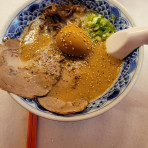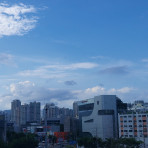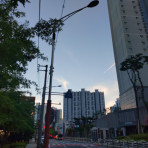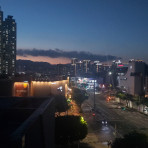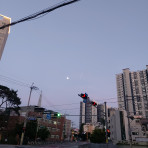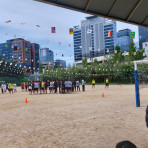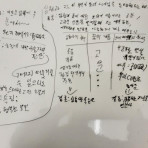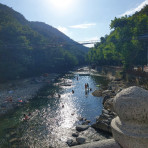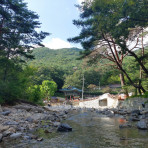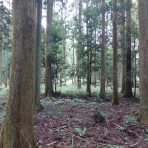Junta ramps up guest list inspections in Yangon and Mandalay
본문
Fri, 23 Feb 2024 16:57:47 -0500

Authorities in Myanmar’s largest cities Yangon and Mandalay have ramped up housing checks in the two weeks since the junta enacted the country’s military conscription law and are arresting any guests who have failed to register, residents said Friday.
The military has suffered heavy losses on the battlefield in recent months – most notably in western Rakhine state, where the ethnic Arakan Army ended a ceasefire in November and has since gone on to capture six townships.
On Feb. 10, the junta enacted the People’s Military Service Law, sending draft-eligible civilians fleeing from Myanmar’s cities. They say they would rather leave the country or join anti-junta forces in remote border areas than fight for the military, which seized power in a 2021 coup d’etat.
RFA Burmese has since received reports of recruitment roundups and arrests of young people, despite pledges from authorities that the law will not be enforced until April.
Residents said that in the past two weeks, authorities in Yangon and Mandalay have been strictly enforcing the Guest List Law, which mandates either seven days’ imprisonment or a fine of 10,000 kyats (US$5) for those who fail to register.
On Feb. 17, junta security personnel arrested three men in their 20s who were living in Yangon to assist in the care of patients at a hospital in Kayan township, according to a close friend who, like others interviewed for this report, declined to be named due to security concerns.
“Family members asked the township police station [what happened to them], but [the police] said that they did not arrest them, and that the arrest was made by the army,” the friend said.
“Then, the families went to the [township] gymnasium where the army was temporarily stationed, but they were not allowed to enter,” he said. “They’ve been unable to contact them.”
The friend did not disclose the identities of the young men who were arrested in order to protect their families from reprisal.
But he said the arrest was part of a pattern emerging in Yangon, as authorities have stepped up inspections on people from out of town since the Feb. 10 announcement.
Male dormitories targeted
One area of Yangon that has come under scrutiny for guest list checks is Kamaryut township, where many students are living in hostels, a resident said.
"Male dormitories undergo more frequent inspections,” he said, adding that the guest registration process has become more rigorous. “Now, in addition to providing guest details, you must also include a picture of the guest. Many residents of the neighborhood are attaching passport-sized photos to the guest list."
According to township “scout groups” formed to spy on the activities of junta troops and police, there were at least 10 arrests of individuals not registered on guest lists in Kamaryut from Feb. 12-22.
But members of the groups said they were unable to confirm whether those arrested had since been released or remain in custody.
Myanmar police inspect a vehicle in Thanlyin in Yangon region in this undated photo. (Citizen journalist)
Based on information compiled by RFA, authorities in the Yangon townships of Sanchaung, Ahlone, Botahtaung, Hlaing, Tamwe, Pazundaung, and Thaketa have carried out guest list inspections at least 12 times from Feb. 13-22.
The number of inspections is likely higher than what RFA was able to document, but there have been no reported arrests.
Mandalay checks
RFA has also received reports of authorities arresting out-of-towners in Mandalay.
On Feb. 13, junta troops arrested four students from Kan Htu Ma village, in Sagaing region’s Taze township, during an inspection at the Tada-U checkpoint in Mandalay, according to a source with ties to their families.
Zaw Zaw Aung, 23, Kaung Htet Soe, 24, Thwin Soe Tun, 23, and Tin Htut Win, 24, had recently completed courses in the city in preparation for travel to South Korea, the source said.
"Their parents are overwhelmed with sadness. They never anticipated being confronted with such a situation,” the source said. “While returning to the village after their exams, this happened … and no one has been able to contact them. The reason [for their arrest] remains unknown."
A resident of Mandalay told RFA that guest lists are checked “nearly every day” in areas with “a high concentration of grassroots communities,” including the townships of Aung Myay Thar Zan, Maha Aung Myay, Pyi Gyi Tagon, and Patheingyi.
“There are constant checks there,” he said. “They involve police, soldiers, firefighters, administrators, and officials from immigration as well."
As a result of the increased scrutiny, businesses regularly close early and “no one ventures out after 8 pm,” other residents said.
Attempts by RFA to contact junta spokesman Major Gen. Zaw Min Tun for comment on the increase in guest list checks went unanswered Friday, but in a statement carried by state media on Feb. 16, he characterized the inspections as part of “public safety measures.”
"Those without a guest list or household list, or cannot produce them … are subject to legal action,” he said, adding that authorities will release anyone detained “if there is a valid reason,” although he did not elaborate on what would qualify as “valid.”
Thailand arrests
Enactment of the conscription law has had a spillover effect on neighboring Thailand, where Prime Minister Srettha Thavisin warned in a statement on Monday that people entering the country illegally would be prosecuted and that security agencies had been alerted to Myanmar nationals fleeing conscription.
Thar Gyi, the managing director of the migrant workers monitoring group K.T.G. Helping Hands, told RFA on Friday that “around 300” Myanmar nationals have been arrested in Thailand’s Tak province over the past two weeks.
“Illegal migration has continuously occurred at the border these days,” he said, adding that “more than 20” illegal migrants were arrested in the Thai border town of Mae Sot on Thursday night alone. “Verification for travel documents has been suspended in Mae Sot … and more and more people are being arrested as they try to enter Thailand illegally.”
Those who have crossed into Thailand legally have also faced close inspection by Thai police, a 21-year old Burmese who arrived in Mae Sot on Feb. 21 told RFA.
A resident of Myanmar’s Myawaddy region who had traveled across the border into Tak province since the enactment of the Military Service Law said that Thai authorities are allowing legal visitors to stay in Mae Sot for one week, after which they are deemed “illegal residents” and forcibly returned. Visitors are also required to have a “guarantor” to ensure that they don’t overstay their time in Thailand.
Migrant workers from Myanmar leave a construction site in the back of a truck in Bangkok on Jan. 3, 2024. (Photo by Lillian Suwanrumpha/AFP)
Homeowners in Tak have also been instructed to “report a mandatory guest list” within 24 hours of a guest’s arrival to Thai immigration authorities, said Moe Gyo, the chairman of the Joint Action Committee on Myanmar People's Affairs.
"It seems that Myanmar's military regime and Thailand's quasi-military government are working closely and harmoniously,” he said. “The practices of Myanmar’s authorities have likely spread to their neighbors.”
Moe Gyo said that in his 20 years of experience working in Tak, there had never been a mandatory guest report for any of the province’s nine townships.
Those who fail to report a guest list face imprisonment for up to one month or a cash fine of 5,000-10,000 baht (US$140-280), he said.
Attempts by RFA to contact the Thai Embassy in Yangon via email received no response by the time of publishing.
Translated by Kalyar Lwin and Aung Naing. Edited by Joshua Lipes and Malcolm Foster.
Authorities in Myanmar’s largest cities Yangon and Mandalay have ramped up housing checks in the two weeks since the junta enacted the country’s military conscription law and are arresting any guests who have failed to register, residents said Friday.
The military has suffered heavy losses on the battlefield in recent months – most notably in western Rakhine state, where the ethnic Arakan Army ended a ceasefire in November and has since gone on to capture six townships.
On Feb. 10, the junta enacted the People’s Military Service Law, sending draft-eligible civilians fleeing from Myanmar’s cities. They say they would rather leave the country or join anti-junta forces in remote border areas than fight for the military, which seized power in a 2021 coup d’etat.
RFA Burmese has since received reports of recruitment roundups and arrests of young people, despite pledges from authorities that the law will not be enforced until April.
Residents said that in the past two weeks, authorities in Yangon and Mandalay have been strictly enforcing the Guest List Law, which mandates either seven days’ imprisonment or a fine of 10,000 kyats (US$5) for those who fail to register.
On Feb. 17, junta security personnel arrested three men in their 20s who were living in Yangon to assist in the care of patients at a hospital in Kayan township, according to a close friend who, like others interviewed for this report, declined to be named due to security concerns.
“Family members asked the township police station [what happened to them], but [the police] said that they did not arrest them, and that the arrest was made by the army,” the friend said.
“Then, the families went to the [township] gymnasium where the army was temporarily stationed, but they were not allowed to enter,” he said. “They’ve been unable to contact them.”
The friend did not disclose the identities of the young men who were arrested in order to protect their families from reprisal.
But he said the arrest was part of a pattern emerging in Yangon, as authorities have stepped up inspections on people from out of town since the Feb. 10 announcement.
Male dormitories targeted
One area of Yangon that has come under scrutiny for guest list checks is Kamaryut township, where many students are living in hostels, a resident said.
"Male dormitories undergo more frequent inspections,” he said, adding that the guest registration process has become more rigorous. “Now, in addition to providing guest details, you must also include a picture of the guest. Many residents of the neighborhood are attaching passport-sized photos to the guest list."
According to township “scout groups” formed to spy on the activities of junta troops and police, there were at least 10 arrests of individuals not registered on guest lists in Kamaryut from Feb. 12-22.
But members of the groups said they were unable to confirm whether those arrested had since been released or remain in custody.
Myanmar police inspect a vehicle in Thanlyin in Yangon region in this undated photo. (Citizen journalist)
Based on information compiled by RFA, authorities in the Yangon townships of Sanchaung, Ahlone, Botahtaung, Hlaing, Tamwe, Pazundaung, and Thaketa have carried out guest list inspections at least 12 times from Feb. 13-22.
The number of inspections is likely higher than what RFA was able to document, but there have been no reported arrests.
Mandalay checks
RFA has also received reports of authorities arresting out-of-towners in Mandalay.
On Feb. 13, junta troops arrested four students from Kan Htu Ma village, in Sagaing region’s Taze township, during an inspection at the Tada-U checkpoint in Mandalay, according to a source with ties to their families.
Zaw Zaw Aung, 23, Kaung Htet Soe, 24, Thwin Soe Tun, 23, and Tin Htut Win, 24, had recently completed courses in the city in preparation for travel to South Korea, the source said.
"Their parents are overwhelmed with sadness. They never anticipated being confronted with such a situation,” the source said. “While returning to the village after their exams, this happened … and no one has been able to contact them. The reason [for their arrest] remains unknown."
A resident of Mandalay told RFA that guest lists are checked “nearly every day” in areas with “a high concentration of grassroots communities,” including the townships of Aung Myay Thar Zan, Maha Aung Myay, Pyi Gyi Tagon, and Patheingyi.
“There are constant checks there,” he said. “They involve police, soldiers, firefighters, administrators, and officials from immigration as well."
As a result of the increased scrutiny, businesses regularly close early and “no one ventures out after 8 pm,” other residents said.
Attempts by RFA to contact junta spokesman Major Gen. Zaw Min Tun for comment on the increase in guest list checks went unanswered Friday, but in a statement carried by state media on Feb. 16, he characterized the inspections as part of “public safety measures.”
"Those without a guest list or household list, or cannot produce them … are subject to legal action,” he said, adding that authorities will release anyone detained “if there is a valid reason,” although he did not elaborate on what would qualify as “valid.”
Thailand arrests
Enactment of the conscription law has had a spillover effect on neighboring Thailand, where Prime Minister Srettha Thavisin warned in a statement on Monday that people entering the country illegally would be prosecuted and that security agencies had been alerted to Myanmar nationals fleeing conscription.
Thar Gyi, the managing director of the migrant workers monitoring group K.T.G. Helping Hands, told RFA on Friday that “around 300” Myanmar nationals have been arrested in Thailand’s Tak province over the past two weeks.
“Illegal migration has continuously occurred at the border these days,” he said, adding that “more than 20” illegal migrants were arrested in the Thai border town of Mae Sot on Thursday night alone. “Verification for travel documents has been suspended in Mae Sot … and more and more people are being arrested as they try to enter Thailand illegally.”
Those who have crossed into Thailand legally have also faced close inspection by Thai police, a 21-year old Burmese who arrived in Mae Sot on Feb. 21 told RFA.
A resident of Myanmar’s Myawaddy region who had traveled across the border into Tak province since the enactment of the Military Service Law said that Thai authorities are allowing legal visitors to stay in Mae Sot for one week, after which they are deemed “illegal residents” and forcibly returned. Visitors are also required to have a “guarantor” to ensure that they don’t overstay their time in Thailand.
Migrant workers from Myanmar leave a construction site in the back of a truck in Bangkok on Jan. 3, 2024. (Photo by Lillian Suwanrumpha/AFP)
Homeowners in Tak have also been instructed to “report a mandatory guest list” within 24 hours of a guest’s arrival to Thai immigration authorities, said Moe Gyo, the chairman of the Joint Action Committee on Myanmar People's Affairs.
"It seems that Myanmar's military regime and Thailand's quasi-military government are working closely and harmoniously,” he said. “The practices of Myanmar’s authorities have likely spread to their neighbors.”
Moe Gyo said that in his 20 years of experience working in Tak, there had never been a mandatory guest report for any of the province’s nine townships.
Those who fail to report a guest list face imprisonment for up to one month or a cash fine of 5,000-10,000 baht (US$140-280), he said.
Attempts by RFA to contact the Thai Embassy in Yangon via email received no response by the time of publishing.
Translated by Kalyar Lwin and Aung Naing. Edited by Joshua Lipes and Malcolm Foster.
자유아시아방송 제공 및 저작권 소유 | RFA provided and copyrighted -www.rfa.org

Authorities in Myanmar’s largest cities Yangon and Mandalay have ramped up housing checks in the two weeks since the junta enacted the country’s military conscription law and are arresting any guests who have failed to register, residents said Friday.
The military has suffered heavy losses on the battlefield in recent months – most notably in western Rakhine state, where the ethnic Arakan Army ended a ceasefire in November and has since gone on to capture six townships.
On Feb. 10, the junta enacted the People’s Military Service Law, sending draft-eligible civilians fleeing from Myanmar’s cities. They say they would rather leave the country or join anti-junta forces in remote border areas than fight for the military, which seized power in a 2021 coup d’etat.
RFA Burmese has since received reports of recruitment roundups and arrests of young people, despite pledges from authorities that the law will not be enforced until April.
Residents said that in the past two weeks, authorities in Yangon and Mandalay have been strictly enforcing the Guest List Law, which mandates either seven days’ imprisonment or a fine of 10,000 kyats (US$5) for those who fail to register.
On Feb. 17, junta security personnel arrested three men in their 20s who were living in Yangon to assist in the care of patients at a hospital in Kayan township, according to a close friend who, like others interviewed for this report, declined to be named due to security concerns.
“Family members asked the township police station [what happened to them], but [the police] said that they did not arrest them, and that the arrest was made by the army,” the friend said.
“Then, the families went to the [township] gymnasium where the army was temporarily stationed, but they were not allowed to enter,” he said. “They’ve been unable to contact them.”
The friend did not disclose the identities of the young men who were arrested in order to protect their families from reprisal.
But he said the arrest was part of a pattern emerging in Yangon, as authorities have stepped up inspections on people from out of town since the Feb. 10 announcement.
Male dormitories targeted
One area of Yangon that has come under scrutiny for guest list checks is Kamaryut township, where many students are living in hostels, a resident said.
"Male dormitories undergo more frequent inspections,” he said, adding that the guest registration process has become more rigorous. “Now, in addition to providing guest details, you must also include a picture of the guest. Many residents of the neighborhood are attaching passport-sized photos to the guest list."
According to township “scout groups” formed to spy on the activities of junta troops and police, there were at least 10 arrests of individuals not registered on guest lists in Kamaryut from Feb. 12-22.
But members of the groups said they were unable to confirm whether those arrested had since been released or remain in custody.
Myanmar police inspect a vehicle in Thanlyin in Yangon region in this undated photo. (Citizen journalist)
Based on information compiled by RFA, authorities in the Yangon townships of Sanchaung, Ahlone, Botahtaung, Hlaing, Tamwe, Pazundaung, and Thaketa have carried out guest list inspections at least 12 times from Feb. 13-22.
The number of inspections is likely higher than what RFA was able to document, but there have been no reported arrests.
Mandalay checks
RFA has also received reports of authorities arresting out-of-towners in Mandalay.
On Feb. 13, junta troops arrested four students from Kan Htu Ma village, in Sagaing region’s Taze township, during an inspection at the Tada-U checkpoint in Mandalay, according to a source with ties to their families.
Zaw Zaw Aung, 23, Kaung Htet Soe, 24, Thwin Soe Tun, 23, and Tin Htut Win, 24, had recently completed courses in the city in preparation for travel to South Korea, the source said.
"Their parents are overwhelmed with sadness. They never anticipated being confronted with such a situation,” the source said. “While returning to the village after their exams, this happened … and no one has been able to contact them. The reason [for their arrest] remains unknown."
A resident of Mandalay told RFA that guest lists are checked “nearly every day” in areas with “a high concentration of grassroots communities,” including the townships of Aung Myay Thar Zan, Maha Aung Myay, Pyi Gyi Tagon, and Patheingyi.
“There are constant checks there,” he said. “They involve police, soldiers, firefighters, administrators, and officials from immigration as well."
As a result of the increased scrutiny, businesses regularly close early and “no one ventures out after 8 pm,” other residents said.
Attempts by RFA to contact junta spokesman Major Gen. Zaw Min Tun for comment on the increase in guest list checks went unanswered Friday, but in a statement carried by state media on Feb. 16, he characterized the inspections as part of “public safety measures.”
"Those without a guest list or household list, or cannot produce them … are subject to legal action,” he said, adding that authorities will release anyone detained “if there is a valid reason,” although he did not elaborate on what would qualify as “valid.”
Thailand arrests
Enactment of the conscription law has had a spillover effect on neighboring Thailand, where Prime Minister Srettha Thavisin warned in a statement on Monday that people entering the country illegally would be prosecuted and that security agencies had been alerted to Myanmar nationals fleeing conscription.
Thar Gyi, the managing director of the migrant workers monitoring group K.T.G. Helping Hands, told RFA on Friday that “around 300” Myanmar nationals have been arrested in Thailand’s Tak province over the past two weeks.
“Illegal migration has continuously occurred at the border these days,” he said, adding that “more than 20” illegal migrants were arrested in the Thai border town of Mae Sot on Thursday night alone. “Verification for travel documents has been suspended in Mae Sot … and more and more people are being arrested as they try to enter Thailand illegally.”
Those who have crossed into Thailand legally have also faced close inspection by Thai police, a 21-year old Burmese who arrived in Mae Sot on Feb. 21 told RFA.
A resident of Myanmar’s Myawaddy region who had traveled across the border into Tak province since the enactment of the Military Service Law said that Thai authorities are allowing legal visitors to stay in Mae Sot for one week, after which they are deemed “illegal residents” and forcibly returned. Visitors are also required to have a “guarantor” to ensure that they don’t overstay their time in Thailand.
Migrant workers from Myanmar leave a construction site in the back of a truck in Bangkok on Jan. 3, 2024. (Photo by Lillian Suwanrumpha/AFP)
Homeowners in Tak have also been instructed to “report a mandatory guest list” within 24 hours of a guest’s arrival to Thai immigration authorities, said Moe Gyo, the chairman of the Joint Action Committee on Myanmar People's Affairs.
"It seems that Myanmar's military regime and Thailand's quasi-military government are working closely and harmoniously,” he said. “The practices of Myanmar’s authorities have likely spread to their neighbors.”
Moe Gyo said that in his 20 years of experience working in Tak, there had never been a mandatory guest report for any of the province’s nine townships.
Those who fail to report a guest list face imprisonment for up to one month or a cash fine of 5,000-10,000 baht (US$140-280), he said.
Attempts by RFA to contact the Thai Embassy in Yangon via email received no response by the time of publishing.
Translated by Kalyar Lwin and Aung Naing. Edited by Joshua Lipes and Malcolm Foster.
Authorities in Myanmar’s largest cities Yangon and Mandalay have ramped up housing checks in the two weeks since the junta enacted the country’s military conscription law and are arresting any guests who have failed to register, residents said Friday.
The military has suffered heavy losses on the battlefield in recent months – most notably in western Rakhine state, where the ethnic Arakan Army ended a ceasefire in November and has since gone on to capture six townships.
On Feb. 10, the junta enacted the People’s Military Service Law, sending draft-eligible civilians fleeing from Myanmar’s cities. They say they would rather leave the country or join anti-junta forces in remote border areas than fight for the military, which seized power in a 2021 coup d’etat.
RFA Burmese has since received reports of recruitment roundups and arrests of young people, despite pledges from authorities that the law will not be enforced until April.
Residents said that in the past two weeks, authorities in Yangon and Mandalay have been strictly enforcing the Guest List Law, which mandates either seven days’ imprisonment or a fine of 10,000 kyats (US$5) for those who fail to register.
On Feb. 17, junta security personnel arrested three men in their 20s who were living in Yangon to assist in the care of patients at a hospital in Kayan township, according to a close friend who, like others interviewed for this report, declined to be named due to security concerns.
“Family members asked the township police station [what happened to them], but [the police] said that they did not arrest them, and that the arrest was made by the army,” the friend said.
“Then, the families went to the [township] gymnasium where the army was temporarily stationed, but they were not allowed to enter,” he said. “They’ve been unable to contact them.”
The friend did not disclose the identities of the young men who were arrested in order to protect their families from reprisal.
But he said the arrest was part of a pattern emerging in Yangon, as authorities have stepped up inspections on people from out of town since the Feb. 10 announcement.
Male dormitories targeted
One area of Yangon that has come under scrutiny for guest list checks is Kamaryut township, where many students are living in hostels, a resident said.
"Male dormitories undergo more frequent inspections,” he said, adding that the guest registration process has become more rigorous. “Now, in addition to providing guest details, you must also include a picture of the guest. Many residents of the neighborhood are attaching passport-sized photos to the guest list."
According to township “scout groups” formed to spy on the activities of junta troops and police, there were at least 10 arrests of individuals not registered on guest lists in Kamaryut from Feb. 12-22.
But members of the groups said they were unable to confirm whether those arrested had since been released or remain in custody.
Myanmar police inspect a vehicle in Thanlyin in Yangon region in this undated photo. (Citizen journalist)
Based on information compiled by RFA, authorities in the Yangon townships of Sanchaung, Ahlone, Botahtaung, Hlaing, Tamwe, Pazundaung, and Thaketa have carried out guest list inspections at least 12 times from Feb. 13-22.
The number of inspections is likely higher than what RFA was able to document, but there have been no reported arrests.
Mandalay checks
RFA has also received reports of authorities arresting out-of-towners in Mandalay.
On Feb. 13, junta troops arrested four students from Kan Htu Ma village, in Sagaing region’s Taze township, during an inspection at the Tada-U checkpoint in Mandalay, according to a source with ties to their families.
Zaw Zaw Aung, 23, Kaung Htet Soe, 24, Thwin Soe Tun, 23, and Tin Htut Win, 24, had recently completed courses in the city in preparation for travel to South Korea, the source said.
"Their parents are overwhelmed with sadness. They never anticipated being confronted with such a situation,” the source said. “While returning to the village after their exams, this happened … and no one has been able to contact them. The reason [for their arrest] remains unknown."
A resident of Mandalay told RFA that guest lists are checked “nearly every day” in areas with “a high concentration of grassroots communities,” including the townships of Aung Myay Thar Zan, Maha Aung Myay, Pyi Gyi Tagon, and Patheingyi.
“There are constant checks there,” he said. “They involve police, soldiers, firefighters, administrators, and officials from immigration as well."
As a result of the increased scrutiny, businesses regularly close early and “no one ventures out after 8 pm,” other residents said.
Attempts by RFA to contact junta spokesman Major Gen. Zaw Min Tun for comment on the increase in guest list checks went unanswered Friday, but in a statement carried by state media on Feb. 16, he characterized the inspections as part of “public safety measures.”
"Those without a guest list or household list, or cannot produce them … are subject to legal action,” he said, adding that authorities will release anyone detained “if there is a valid reason,” although he did not elaborate on what would qualify as “valid.”
Thailand arrests
Enactment of the conscription law has had a spillover effect on neighboring Thailand, where Prime Minister Srettha Thavisin warned in a statement on Monday that people entering the country illegally would be prosecuted and that security agencies had been alerted to Myanmar nationals fleeing conscription.
Thar Gyi, the managing director of the migrant workers monitoring group K.T.G. Helping Hands, told RFA on Friday that “around 300” Myanmar nationals have been arrested in Thailand’s Tak province over the past two weeks.
“Illegal migration has continuously occurred at the border these days,” he said, adding that “more than 20” illegal migrants were arrested in the Thai border town of Mae Sot on Thursday night alone. “Verification for travel documents has been suspended in Mae Sot … and more and more people are being arrested as they try to enter Thailand illegally.”
Those who have crossed into Thailand legally have also faced close inspection by Thai police, a 21-year old Burmese who arrived in Mae Sot on Feb. 21 told RFA.
A resident of Myanmar’s Myawaddy region who had traveled across the border into Tak province since the enactment of the Military Service Law said that Thai authorities are allowing legal visitors to stay in Mae Sot for one week, after which they are deemed “illegal residents” and forcibly returned. Visitors are also required to have a “guarantor” to ensure that they don’t overstay their time in Thailand.
Migrant workers from Myanmar leave a construction site in the back of a truck in Bangkok on Jan. 3, 2024. (Photo by Lillian Suwanrumpha/AFP)
Homeowners in Tak have also been instructed to “report a mandatory guest list” within 24 hours of a guest’s arrival to Thai immigration authorities, said Moe Gyo, the chairman of the Joint Action Committee on Myanmar People's Affairs.
"It seems that Myanmar's military regime and Thailand's quasi-military government are working closely and harmoniously,” he said. “The practices of Myanmar’s authorities have likely spread to their neighbors.”
Moe Gyo said that in his 20 years of experience working in Tak, there had never been a mandatory guest report for any of the province’s nine townships.
Those who fail to report a guest list face imprisonment for up to one month or a cash fine of 5,000-10,000 baht (US$140-280), he said.
Attempts by RFA to contact the Thai Embassy in Yangon via email received no response by the time of publishing.
Translated by Kalyar Lwin and Aung Naing. Edited by Joshua Lipes and Malcolm Foster.
좋아요1
이 글을 좋아요하셨습니다
관련링크
등록된 댓글이 없습니다.

